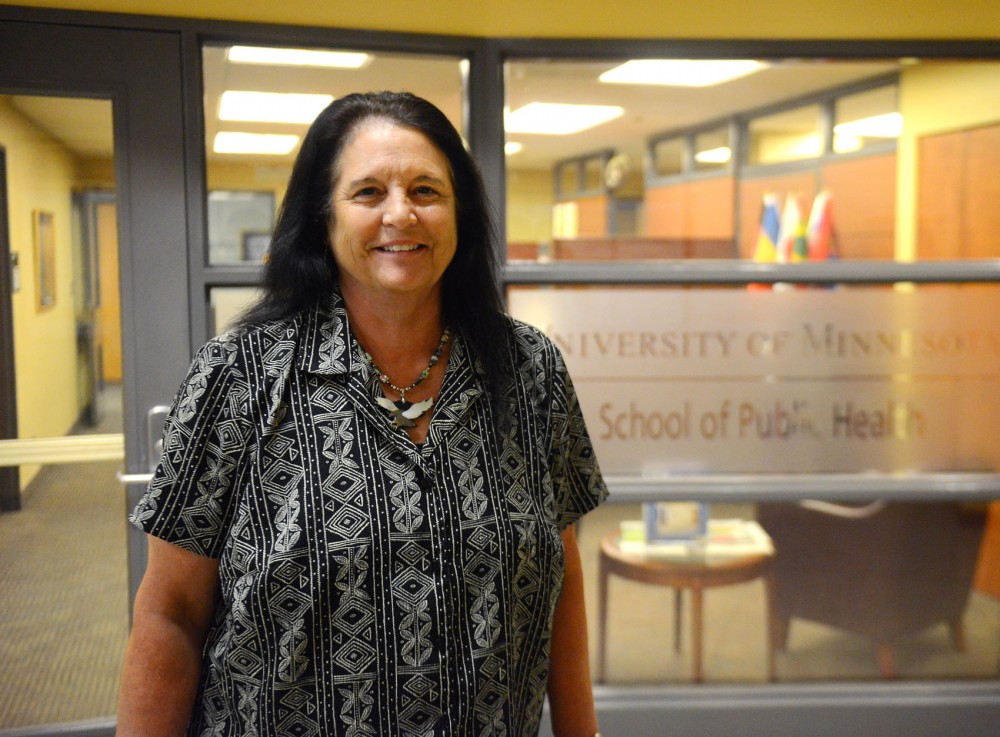After students in the University of Minnesota’s School of Public Health requested more classes in health disparities and health equity last spring, officials realized they needed someone with expertise in the field.
Starting this fall, American Indian public health researcher Linda Frizzell will join the public health team as an assistant professor in order to teach graduate students about the population health of indigenous people.
The new classes will focus on health equity for rural and American Indian communities, with the goal of adding a graduate-level certificate in American Indian population health, School of Public Health Dean John Finnegan said.
Finnegan said he met Frizzell while serving on the Minnesota Department of Health Minority and Multicultural Health Advisory Committee. She told him about the growing disparity in access to health care between native communities and the general population, he said.
The main health challenge for indigenous people is getting access to care, Frizzell said, because fewer doctors and hospitals exist in remote areas, and the health care professionals available don’t always cater to the cultural differences of American Indian communities.
“It is fundamentally necessary to understand that the [American] Indian health system is unlike any other …” she said.
But by teaching students how to meet the needs of minority communities, bringing health care to indigenous populations could be easier as the workforce admits newer
graduates, University Health Policy and Management Associate Professor Katy Kozhimannil said.
Kozhimannil, who will work with Frizzell in the coming months, specializes in vulnerable populations and said she hopes Frizzell’s classes will give students a new outlook on indigenous populations.
Frizzell, who is of Eastern Cherokee and Lakota descent, grew up in rural southern Iowa on a farm and moved to a northern Minnesota reservation with her husband in 1974. She worked at a K-12 school in Laporte, Minn.
Teaching and working with the students at Laporte Public School sparked Frizzell’s interest in American Indian communities. She previously conducted research for an Indian
organization in Oregon and ran a public health master’s program focused on minority health at North Dakota State University.
Frizzell also runs a consulting business for native communities. She assesses demographic data and passes on the results to businesses, researchers and government organizations, which she’s done for more than 25 years.
Finnegan said Frizzell’s experience made her a good fit for the job, adding that he hopes the new courses will attract a more diverse group of students to the school.
Once the classes take off, he said he would like to open classes to undergraduate students and create a focus on rural communities in the public health master’s
degree program.


